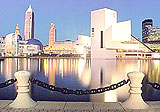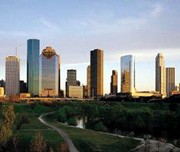imagined ugliness 想象丑陋
|
照镜子时总觉得自己不好看,鼻子不够高,眼睛不够大,嘴型也不够美?经常抱有这种心理的人其实是患有“想丑综合征”,好多自己严重的缺陷都是想象出来的。专业人士表示,这是一种心理障碍,得治。 Beauty may be in the eye of the beholder; but so, alas, is its opposite. As a result, thousands of Americans -- including a sizable fraction of those who have elective plastic surgery -- may be suffering from delusions of "imagined ugliness (syndrome)," an irrational dislike for all or part of one's physical appearance, according to a report in The American Journal of Psychiatry. 情人眼里出西施,这句话反过来说,似乎也是对的。《美国精神病学杂志》刊登的一份报告显示,成千上万的美国人都饱受“想象丑陋(综合征)”错觉的困扰,其中有一部分人已经有选择地接受了整容手术。“想象丑陋”指对自己的全部或部分外表严重不满意的状态。 The condition, known as "body dismorphic disorder," is characterized by obsession with an imagined flaw: An overly large nose, "devious-looking" eyebrows, or a "stretched" mouth are common examples. It can last for years, often accompanied by severe depression, suicidal behavior, social withdrawal, repeated visits to plastic surgeons and "frequent mirror checking." 这种状况学名叫做“躯体变形障碍”,表现为过度关注自身想象出来的一些身体缺陷:鼻子太大、看似阴险的眉形或者外扩的嘴巴等都是常见的一些“想象丑陋”的例子。这种对自己外表的不满会持续数年,同时伴随严重的抑郁、自杀行为、孤僻行为、多次求助整形医生以及不停照镜子等行为。 |






![亚特兰大[美国佐治亚州首府]](/uploads/shenghuo/2023/12/06/10142812090.jpg)

